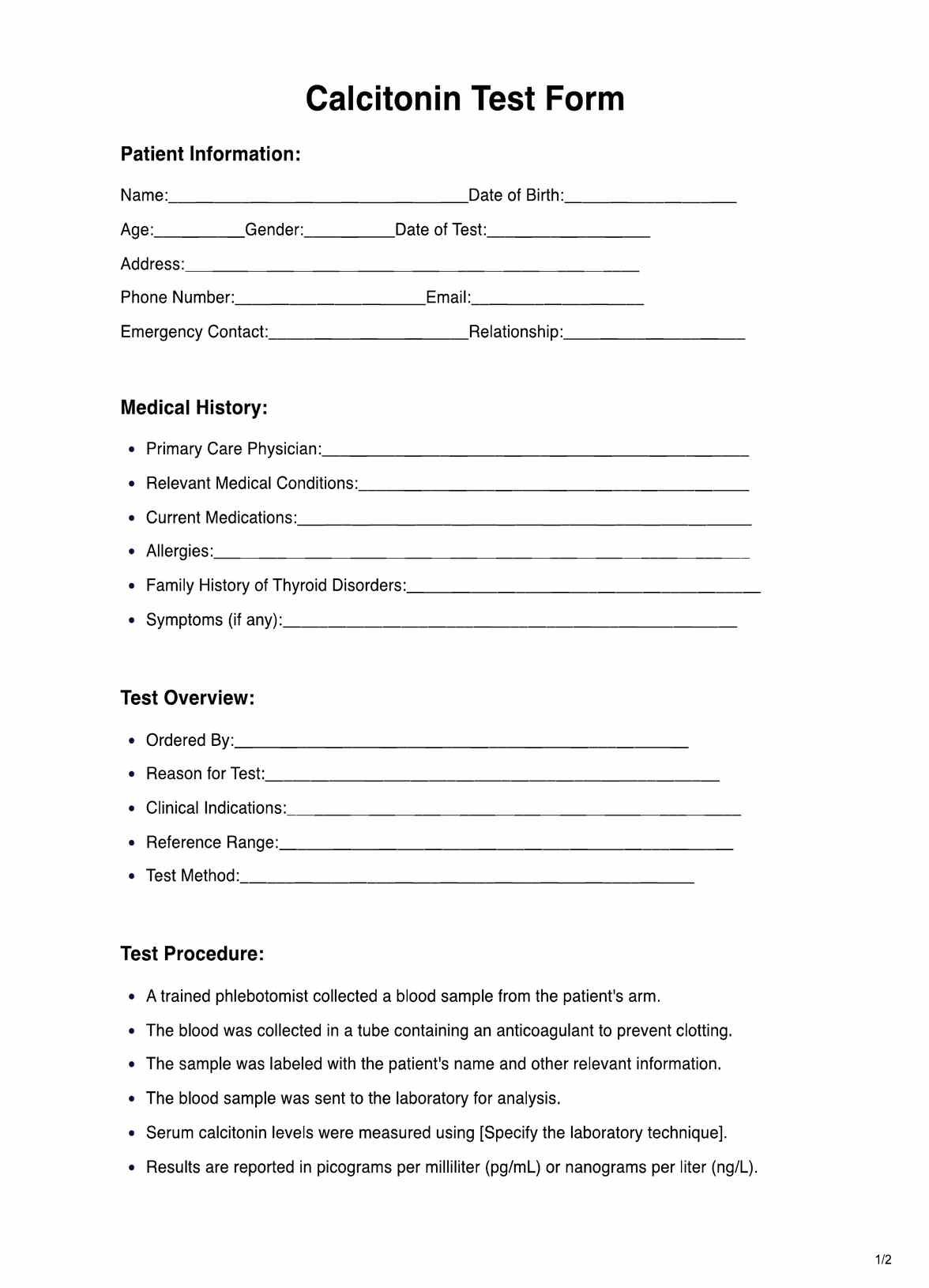Calcitonin Tests are typically requested by healthcare providers, including endocrinologists, primary care physicians, surgeons, oncologists, and radiologists. These professionals use the test to assess thyroid health, diagnose thyroid disorders, and monitor thyroid cancer, particularly medullary thyroid carcinoma (MTC).

Calcitonin
Discover the significance of the Calcitonin Test and how it's conducted. Get a free PDF example of a Calcitonin Test form.
Calcitonin Template
Commonly asked questions
The Calcitonin Test involves a blood draw, where a healthcare professional collects a blood sample from the patient's arm. This blood is processed and sent to a laboratory for analysis. The serum is separated from the blood cells in the laboratory and analyzed to measure calcitonin concentration. The results are reported in picograms per milliliter (pg/mL) or nanograms per liter (ng/L).
The Calcitonin Test is relatively quick and typically takes only a few minutes to collect the blood sample. However, the overall turnaround time for results can vary. It may take a few hours to several days, depending on the specific laboratory's processing time and the complexity of the analysis. Patients can expect to receive their results after this processing period during a follow-up appointment with their healthcare provider.
EHR and practice management software
Get started for free
*No credit card required
Free
$0/usd
Unlimited clients
Telehealth
1GB of storage
Client portal text
Automated billing and online payments











